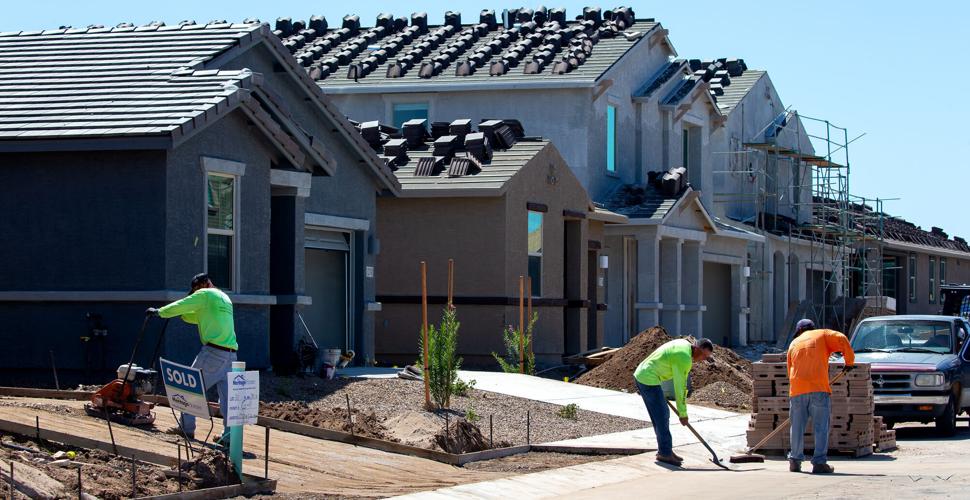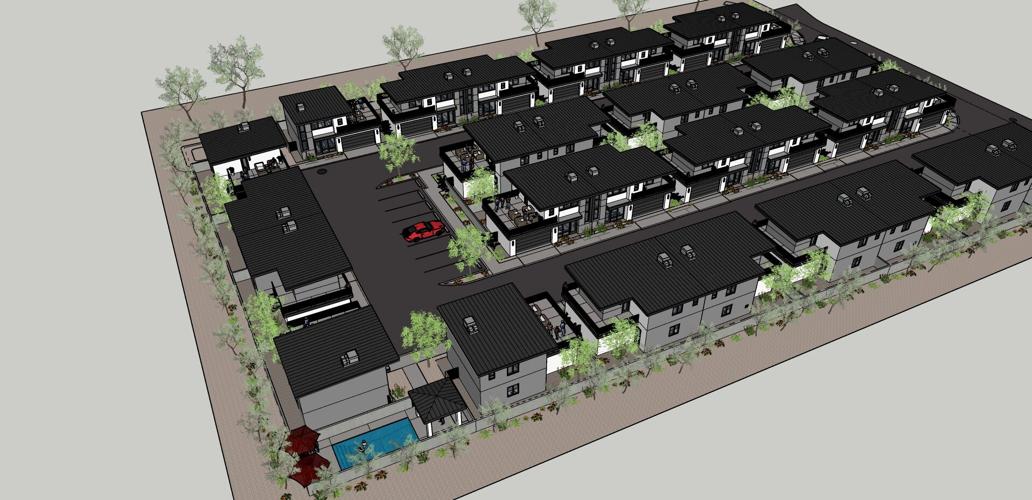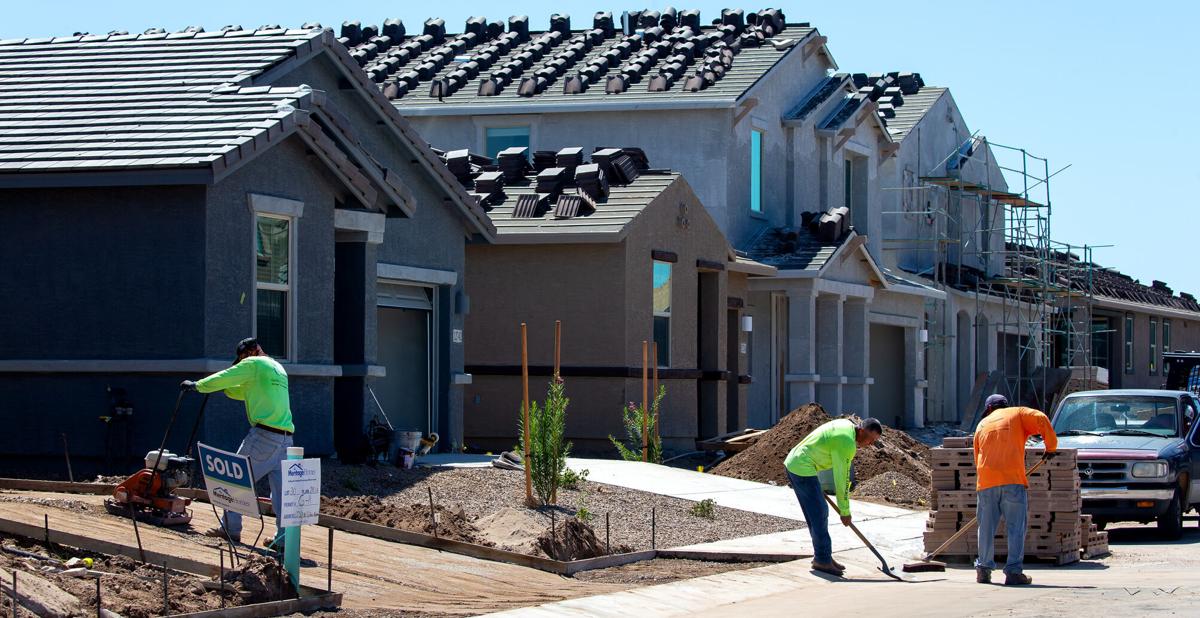Tucson’s housing market is expected to stabilize in 2023 as concerns over rising interest rates were met with creativity by homebuilders.
By offering discounts, buy downs and lower base prices with fewer frills, homebuilders have been able to sell the spec homes that were started during the home price run-up.
This caused a sharp decline in the number of new home permits but there was still much activity, said Jim Daniel, a local housing analysts with R.L. Brown Reports.
“It’s probably too early to expect a permit recovery, and most market disciples recognize that until that unsold-permitted housing inventory reaches completion and finds buyers, there should be little expectation on the part of market observers for a substantive change in the level of permit activity,” he said.
In January, there were 176 new home permits issued in the Tucson area, compared to 481 in January 2022 — a drop of 63%.
“With just a casual glance at the statistical data ... one would find it easy to conclude that the results were dismal, and the marketplace was decimated,” Daniel said, noting that homebuilders closed on 202 new homes in January, versus 229 in January 2022.
“The Tucson market has been actively and aggressively involved in rebalancing its production efforts to its demand as demonstrated by recorded closings,” he said. “To have failed to accomplish this rebalancing over the last several months would have created a market disaster of stunning proportions.”

There are currently nine communities of homes just for renters that are proposed, under construction or recently completed in the Tucson area that account for more than 1,500 new homes, such as this one at 1100 W. River Road. It will have a community pool, outdoor barbecues and gathering areas.
Sales of existing homes has slowed, as some owners reconsider listing their property because of rising interest rates and a lowered expectation of asking price.
There were 954 resales in January 2023, versus 1,709 in January 2022 but the median resale price remained flat at $315,000.
The most active areas of town for home sales are the southeast, Marana west and Pusch Ridge.
Uncertainty in the housing market
The need for more housing is not unique to the Tucson market and challenges for production remain.
The National Association of Realtors notes there has been some relief in the supply-chain issues that have been a concern since the second half of 2020.
Builders report lumber prices creeping up as well as the cost of appliances. And, global trade issues has resulted in delays or shortages of electrical transformers which are needed to provide power to a home.
On the political side, matters such as rezoning, infill and allowing for higher developments is often met with resistance from neighbors and results in long delays or cancelations of housing projects.
Multifamily developments or communities of single-family homes that are only for renters has grown as a result of the uncertainty in the new housing market.
Known as the “built to rent” market, these gated communities are an antidote for residents wanting a single-family home with a yard as they either wait to buy or chose renting as a lifestyle.
There are currently nine such communities that are proposed, under construction or recently completed in the Tucson area that account for more than 1,500 new homes.
As more supply of all types of housing comes online, prices are expected to remain flat with slight decreases in rents — or more likely — less increases as the average Tucson-area rents have increased more than 30% since 2020.
Watch now: Tucson City Council discusses ways to make casitas more affordable during a one-year review of the secondary homes' implementation. Video courtesy of city of Tucson.






